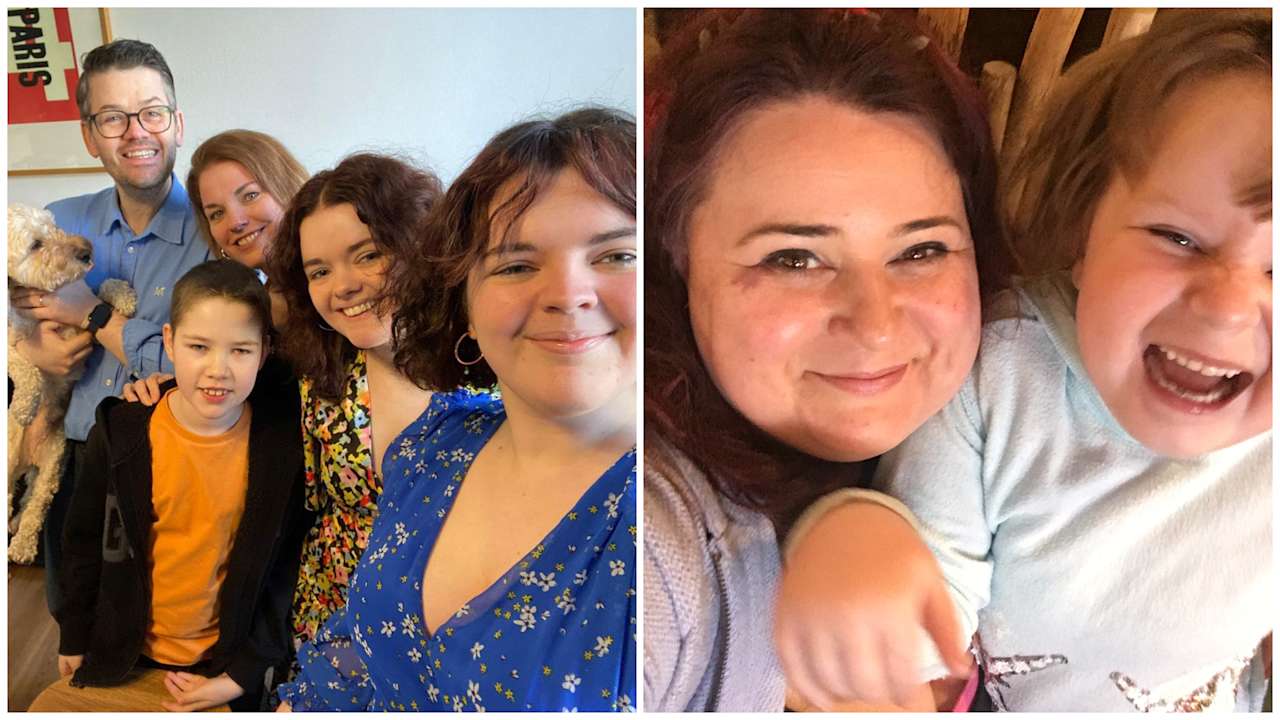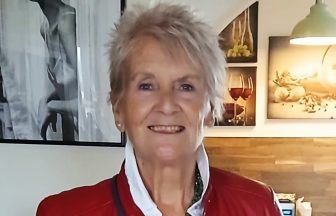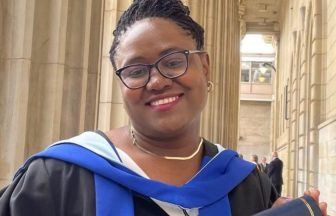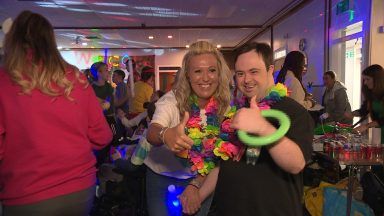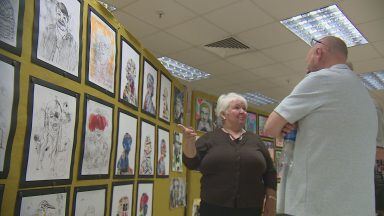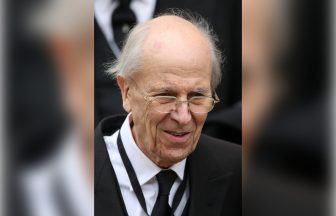Words by ITV News Producer Hannah Ward-Glenton
“We went through the process of hearing [our daughter’s] questions, and both of us, our eyes kind of went ‘Oh, okay, that explains a lot.'”
Diane Wass suspected she had attention deficit hyperactivity disorder (ADHD) the first time she read through the questions designed to assess her daughter.
“I immediately knew as soon as I was sitting through the test, I just thought ‘Yeah, I’m off the scale here, too.'”
Diane was formally diagnosed with ADHD several years later, but she remembers it having impacted most of her life.
“They made me pick up rubbish at lunchtime every day because I was late… I remember my English teacher screaming at me, saying ‘How can someone like you be in the top set? You’re so careless, you always forget your homework and you never stop talking,'” she recalled.
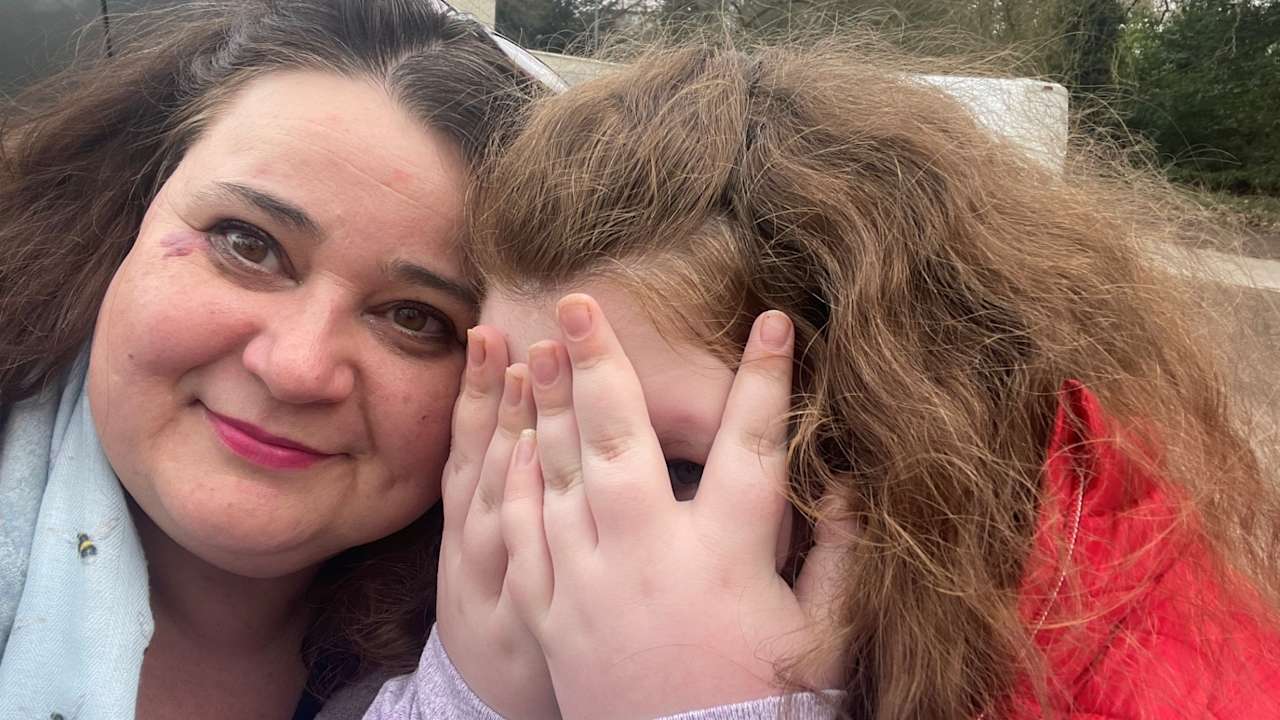
Diane then saw her daughter similarly struggle in a traditional education environment, which impacted her mental health and led to her no longer attending school.
“It was actually a real struggle to even get her across the playground with my husband and I – she was like a terrified, wounded animal.”
Diane’s daughter was later diagnosed with ADHD and autism, as well as dyspraxia and dyslexia, before she then moved to a school better suited to her needs.
Rob Edwards also noticed his ADHD tendencies after having his daughter diagnosed.
“Once you start getting into that whole world as well, you start thinking, ‘Oh, wow, that is exactly like me,'” he said.
The stigma around ADHD, as well as its symptoms often being mistaken for bad behaviour or laziness, led Rob to not believe his diagnosis, even after years of anticipating it.
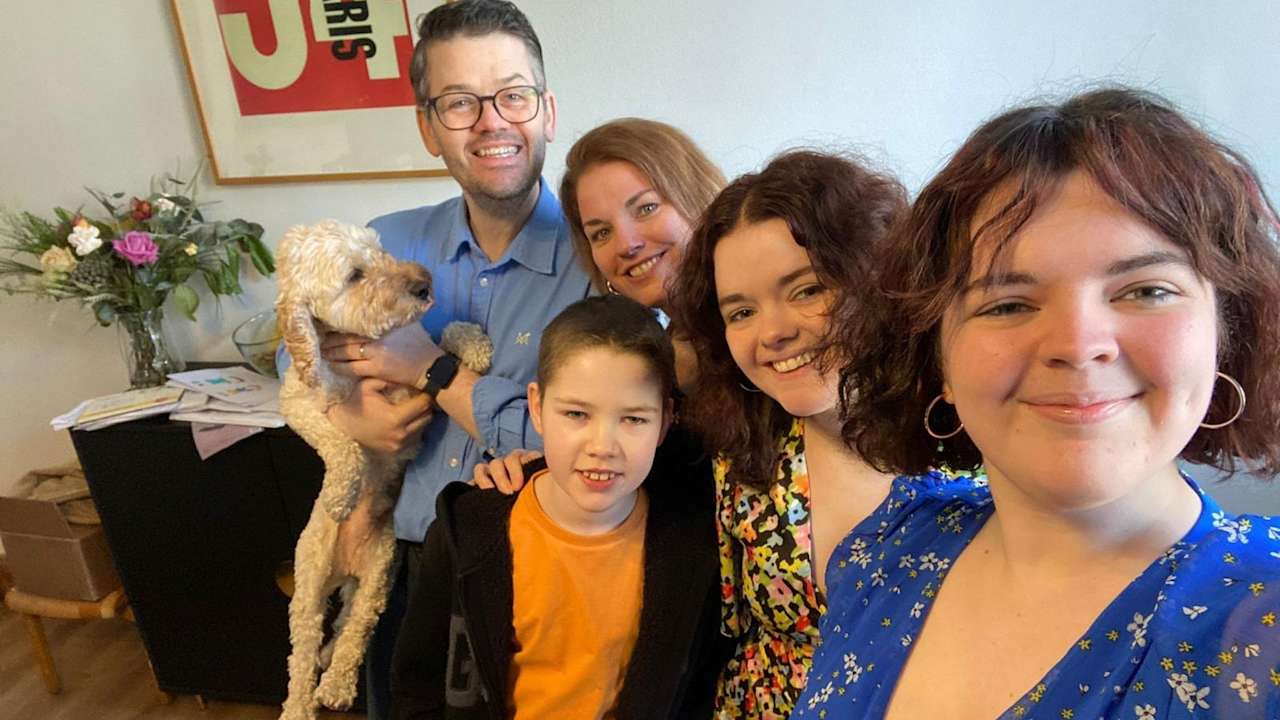
“Even at the end of all of that I was still expecting them to turn around and say, ‘Oh, no, you are just lazy. You know, you are just really muddled and disorganised.'”
“So when [the doctor] actually said at the end that it sounds like an ADHD profile. It’s like, oh, blimey.”
“I wasn’t quite prepared for how emotional it would be,” he added.
The exact number of parents who learn they have ADHD as a result of their children’s diagnosis is unclear, particularly as ADHD more widely is believed to be severely underdiagnosed, but anecdotally, more and more people are seeking out diagnoses, according to charities, researchers and families who spoke to ITV News.
There are three subtypes of ADHD: the inattentive kind (difficulty concentrating and focusing), the more commonly recognised hyperactivity and impulsiveness kind, and a combined type that is a mixture of the two.
Why are more people being diagnosed with ADHD?
Dr Doug McKechnie of the UCL Institute of Epidemiology & Health Care said ADHD diagnoses and prescriptions for ADHD medication by a GP have become more common over time.
“Whilst ADHD is most likely to be diagnosed in childhood, an increasing number of people are diagnosed for the first time in adulthood. We do not know exactly why this is happening, but it may be that ADHD has become better recognised and diagnosed.
“Over the last few years, there have been many reports of long waiting lists for ADHD assessments on the NHS, especially in adults. It’s likely that more and more people will be diagnosed with, and treated for, ADHD, so specialist services need to be made available to handle this.”
A heightened awareness of what exactly ADHD is, along with a shift in diagnostic criteria in recent years, has also likely led to an uptick in diagnoses.
“If adult diagnosis had been possible before, we’d have seen comparable levels,” Professor of Neuroscience at King’s College London Ellie Dommett told ITV News.
“With the neurodiversity movement, we’re seeing recognition that this is not necessarily a problem, it is a difference.
She said there is a case to be made for people with ADHD, and other neurodivergences such as autism and dyslexia, having “unique strengths”.
“And I think what that means is that people are more willing to seek out a diagnosis because we see a slight reduction in the stigma associated with the conditions,” she added.
The benefits of a diagnosis
One reason Diane sought out a diagnosis, despite being fairly certain she had ADHD, was to let other people know that it was alright to have it, but also to highlight the advantages – some of which she says helped her to get her PhD in physiology from the University of Oxford.
“Play on your strengths,” she said. “The reason I see patterns is because your mind goes around a million minutes a mile, you know, bouncing all over the place. You ask 10 million questions at once. You’re going to spot the trends and patterns of that’s the way your mind works.”
“I guess I wanted to be diagnosed for myself so that I could understand what are the right strategies to put in place after these many decades,” she added.
Rob added that the diagnosis allowed him to better understand himself and how he could work with his ADHD rather than being frustrated by working styles that didn’t suit him.
“It wasn’t just me being disorganised and lazy… And it made me be really, like, much kinder to myself as well.
“I’ve learned a lot of compassion for myself through the whole process, but then also compassion for other people who are in the same boat and are probably thinking that they are just really muddle headed.”
“And I think it has really gelled us all together,” he added, explaining how his family’s communication with one another has improved now that they better understand how their brains work.
Professor Dommett said the idea of things “making sense” was common across people who get an ADHD diagnosis later in life.
“It was as if a weight had been lifted because they had a better understanding of who they were, how they were and that there wasn’t something wrong with them,” she said, reflecting on her research.
“[People with ADHD] weren’t broken, they were just different and when they sort of kept forgetting things, it wasn’t just because they were ditzy or they weren’t trying to remember, they sort of get a bit better understanding of themselves and that brings with its own relief.”
Difficulties with diagnosis
Most people don’t get a diagnosis because they don’t fit a stereotypical idea of ADHD, Dr Tony Lloyd, CEO of the ADHD Foundation told ITV News.
“The great majority of people with ADHD were never identified at school because they didn’t fit the stereotype of a fidgety, naughty boy,” he said.
“And we only ever diagnosed one girl to every four boys,” he added.
Diagnostic stigma is still an issue, Professor Dommett said, while many workplaces have “surprisingly little support” in place for adults with ADHD.
“So I think that’s the downside – unless you happen to have a very supportive employer who’s willing to invest time and probably money in understanding what will help and what will support you and give you flexibility. It can be quite tricky to manage in the workplace.”
But that can be overcome with better understanding, Dr Tony said.
“If we can help people understand certain things about certain neurotypes as potential challenges in the same way that we would with say a diabetic, then you eradicate the risk of of negative outcomes.”
How many people have ADHD?
It’s thought that 2.6 million people in the UK have ADHD, according to data collected by ADHD UK.
It’s believed that a further two million people have ADHD but do not have a diagnosis.
The National Institute for Health and Care Excellence estimates that globally around 5% of children have ADHD.
Data collected on ADHD is “likely to significantly underrepresent” the number of people seeking, waiting for and with a diagnosis of ADHD, according to the NHS England website.
Follow STV News on WhatsApp
Scan the QR code on your mobile device for all the latest news from around the country


